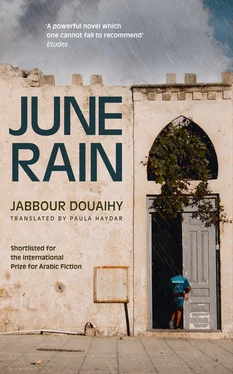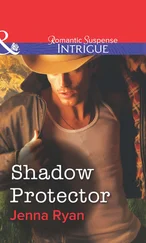‘“I don’t want you to die as a result of some error… ” she used to say. In fact, we grew up with a special temperament. We never gave our opinion about what was happening around us, and we never passed along any news or information or anything we knew to anyone. One of our mother’s rules was, “He who informs you humiliates you.” So we listened but we didn’t speak. We heard sounds and made predictions about what was happening. My father and mother could pinpoint the various sounds — sounds of people’s voices and of gunfire — and could predict what would ensue.’
First, people become uneasy upon hearing ‘deep’ gunfire for a well-known reason — not only is it far off in the distance, but it also doesn’t cause an echo. Thus, it is likely to have been fired directly at its target, which was more than likely to be a person, and the possibility of hearing some bad news after ‘deep’ gunfire was highly likely. Next there was what they called arrasi gunfire, which was gunfire shot into the air, in reference to shots fired in celebration of a wedding ceremony. And there were numerous occasions that called for celebratory gunfire, such as a child passing government exams or the birth of a son after long years of waiting. Someone even made a tape recording of himself shooting his rifle so he could send it to his brother who’d emigrated to Australia where (his brother assumed) he had been deprived of hearing the sound of gunfire. And then there was the unverified claim that Abu Saeed’s neighbours and relatives started shooting into the air one day, refusing to tell the reason for their joy. The secret didn’t come out until days later, thanks to some women who sent out news outside the quarter that Abu Saeed had been experiencing a constant erection and was worried sick about it. He’d consulted numerous doctors and the day it finally ‘slept’ for him, as they say, all his family and neighbours fired their rifles in celebration. And then there was the takleemi or ‘conversational’ gunfire, which is when one spray of fire is answered by another. That wasn’t such a bad sound to hear as it was an indication that the two sides were both ready with their weapons and it was most likely that matters would remain restricted to establishing each side’s presence and wouldn’t lead to casualties. Possibly the worst type of gunshot was that which could not be heard at a distance because it had been shot point blank — in other words at a very short distance from its target, too close to miss. And quite often you would hear people say, ‘I don’t like that gunfire,’ which was usually more a reflection of the bad feeling of whoever said it than something based on tangible information. That objection, which evolved into outright curses, was aimed especially at that kind of single gunshot. It was usually a shot from a rifle that broke the silence of the barricades and set off the confrontation. Even after the events came to an end, no one ever found out whose rifle it was and no one was ever certain from which side it was fired. It appeared both sides believed it came from behind the opposing sides’ barricades.
‘And then there was the problem of echoes. If we were to have a new visitor, for example, everything would be confusing for him, because when there was an echo we knew the sound coming from the east might have been produced on the western side. The thing that confused matters for us most of all was trying to decipher what the explosions and gunshots symbolised, like when the first 60-mm mortar shell fired in the direction of our neighbourhood landed in front of us. My mother saw the smoke rising up from the riverbank. Her eyes popped with shock and my father made a silent decision that we would leave this place.
‘We knew even without going outside that something big had happened. That was a difficult night; no one in the neighbourhood slept at all. From time to time we would hear weeping and there was someone who insisted on tolling the bells at night. Have you ever heard bells tolling at night? A lone cry of suffering reached us, too. They were keeping a vigil over the dead and we were not allowed to leave the house. Even the funeral the next day was something we didn’t dare attend. We were told that the bishop called on everyone to renounce their spite and vengeance and to be tolerant instead, but he was met with jeers of rejection and disapproval and was forced to finish up his sermon quickly. I didn’t sleep at all that night, either. The air was heavy and we knew they were all congregated there, around the church, weeping, even though we couldn’t hear their sobs.
‘The next evening, I turned the radio back on. I couldn’t deprive myself of it for more than one day, but I did move it closer to this red couch right here and I put my ear nearly up against it so I could hear it without letting the sound travel to any other person. It was a very dark night, no moon and no light. I remember I was listening to the Mohammed Abd al-Wahhab song ‘Love and Youth’ when the electricity went out. My mother shouted out, saying that was the last thing we needed on that disastrous day. It was dead silent in the neighbourhood and all through the town, after two days of misery and a long, sleepless night. The time for bodies to go limp had come. The whole town was like a team of runners who’d just finished a gruelling race and were so exhausted they fell to the ground trying to catch their breath. We were the least affected. Though we knew many of the dead, none of them were our relatives. There was Farid Badwi al-Semaani, the tailor, who was a handsome young man my father was always teasing and never responded except with a sly smile. And we knew Yusef al-Kfoury, your poor father. He loved life and loved evening gatherings… and women, too, which Kamileh knew about though she never complained.
‘And so here I was, sitting here, when the electricity went out and the radio stopped singing. What could I do? I sat in the dark, smoking and waiting. It was a rare silence that was only interrupted by the sound of frogs croaking near the river, and total darkness pierced only by the flash of fireflies. I remember listening closely to the silence that night after the day’s noise and heartbreak and weeping. I stayed there that way for more than two hours wishing the calm would last a long time. But suddenly the electricity came back on and in a matter of seconds something occurred that I can never forget. I’ve never told anyone about it, actually, except my mother. And now that my mother is dead, no one but me knows what I saw and I want to tell you about it. I don’t know who sent you to me. I didn’t move from here, from this velvet sofa, the whole time the electricity was out. The only movement I made was to light a match every half hour to light a cigarette. But when the electricity suddenly came back on, I saw a very strange thing, which I will tell you about because it’s been forty years since then.
‘The lights came back on in our house and here in the sitting room, and with the surge of electricity the radio came blaring on, too. It came on very loud despite my having lowered the volume so no one else could hear it but me before the electricity went out. The electricity and the loud blare of Um Kulthum’s voice into the night surprised me. My first reaction was to look towards your house to determine if your mother or anyone there had heard the song. In fact, I did that even before reaching over to turn the volume down. In any case, it all happened in a matter of seconds. The image was stamped in my mind but I didn’t think much of it the moment I saw it because I was so concerned with the radio and the high volume and the shame of it all and what my father might say about my negligence and the scandal of my listening to the radio despite all our fallen neighbours and friends. Once I was able to turn the radio completely off and make sure no one was going to pounce on me and complain because they’d all finally fallen into a deep sleep after two nights of sleeplessness, I went back to my spot here on the red sofa. I noticed in that moment what I had glimpsed happening in your house and was still unfolding before my eyes. I saw Fuad and Butros al-Rami on the balcony, like in the old days. I thought I must be mistaken about the timeframe, that I was witnessing a scene from a long time ago that was still stamped in my memory. You know who Fuad and Butros al-Rami are, right? True they were your father’s closest friends, but how could they be here? They were from the Rami family!
Читать дальше












